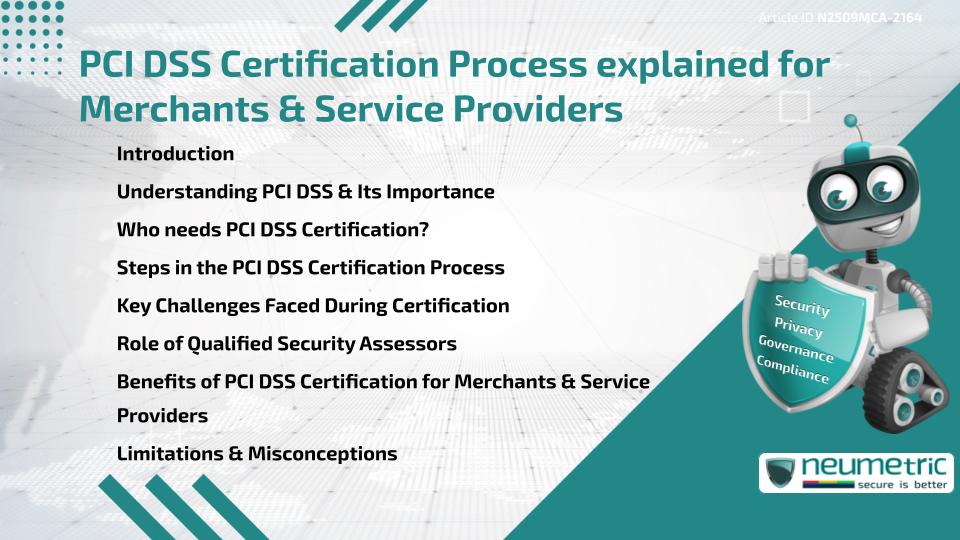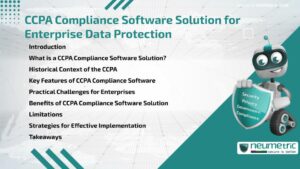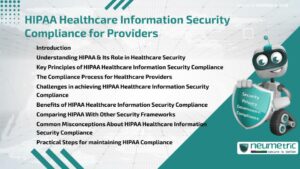Table of Contents
ToggleIntroduction
The PCI DSS Certification Process is a mandatory requirement for Organisations that handle payment card data. It ensures secure handling of cardholder information & protects against fraud. Merchants & service providers undergo specific steps to meet the Payment Card Industry Data Security Standard [PCI DSS]. This article explains who needs certification, the steps involved, challenges, benefits & common misconceptions so that Organisations can better understand Compliance Requirements.
Understanding PCI DSS & Its Importance
PCI DSS or Payment Card Industry Data Security Standard, was established by major credit card companies to protect cardholder data. The Standard applies globally & covers areas such as encryption, Access Control & monitoring. Without compliance, Organisations Risk data breaches, Financial penalties & loss of Customer Trust. According to PCI Security Standards Council, compliance is not optional for entities that store, process or transmit card data.
Who needs PCI DSS Certification?
Merchants of all sizes, from small retailers to multinational corporations & service providers such as payment gateways, hosting companies & managed security firms, must comply with the PCI DSS Certification Process. The level of Assessment depends on transaction volume. For example, large merchants processing millions of transactions may require an annual onsite Audit, while smaller ones may only need to submit a Self-Assessment Questionnaire [SAQ].
Steps in the PCI DSS Certification Process
The PCI DSS Certification Process generally involves:
- Scoping: Identifying systems, applications & networks that interact with cardholder data.
- Gap Analysis: Reviewing existing Security Controls against PCI DSS requirements.
- Remediation: Addressing Vulnerabilities & implementing required safeguards.
- Validation: Conducting a formal Assessment through SAQ or an onsite Audit by a Qualified Security Assessor [QSA].
- Reporting: Submitting Compliance Reports to acquiring banks or card networks.
Key Challenges Faced During Certification
Many Organisations find the PCI DSS Certification Process challenging due to:
- Complex IT infrastructure.
- Legacy systems that are difficult to secure.
- Limited budgets for security investments.
- Lack of in-house expertise.
These issues make it essential to engage experienced QSAs or use external consultants for guidance. Resources from ISACA provide useful insights into overcoming such challenges.
Role of Qualified Security Assessors
Qualified Security Assessors play a central role in the PCI DSS Certification Process. They are trained & authorized by the PCI Security Standards Council to conduct audits, validate compliance & provide recommendations. Organisations often rely on QSAs to interpret complex requirements & ensure that remediation efforts meet industry expectations.
Benefits of PCI DSS Certification for Merchants & Service Providers
Achieving PCI DSS Certification provides multiple advantages:
- Strengthened security posture.
- Reduced Risk of costly breaches.
- Enhanced Customer Trust & confidence.
- Compliance with contractual obligations from card brands.
- Competitive advantage in demonstrating commitment to security.
Limitations & Misconceptions
It is important to note that PCI DSS Certification does not guarantee complete immunity from cyberattacks. Instead, it establishes a minimum baseline of controls. Another common misconception is that once certified, compliance is permanent. In reality, the PCI DSS Certification Process requires ongoing monitoring & annual reassessments to maintain status.
Takeaways
The PCI DSS Certification Process is essential for merchants & service providers that handle cardholder data. While the steps may seem complex, following structured procedures & seeking professional guidance helps ensure compliance. Certification improves security, builds trust & reduces business Risks.
FAQ
What is PCI DSS certification?
PCI DSS Certification is proof that an organisation complies with the Payment Card Industry Data Security Standard for handling cardholder data securely.
Who must undergo the PCI DSS Certification Process?
All merchants & service providers that store, process or transmit cardholder data must comply, regardless of size or transaction volume.
How long does the PCI DSS Certification Process take?
The timeline depends on the complexity of the systems & the size of the Organisation. It can range from a few weeks for small merchants to several months for large enterprises.
What role does a Qualified Security Assessor play?
A QSA performs onsite audits, validates compliance & provides expert recommendations to help Organisations meet PCI DSS requirements.
Does PCI DSS Certification guarantee security?
No, it does not guarantee complete protection. Instead, it ensures a strong baseline of security practices & reduces the Risk of breaches.
What happens if a business is not PCI DSS compliant?
Non-compliance may lead to penalties, increased transaction fees, loss of ability to process card payments & reputational damage.
Is PCI DSS Certification a one-time activity?
No, it requires ongoing compliance, with annual assessments & Continuous Monitoring of systems handling cardholder data.
Need help for Security, Privacy, Governance & VAPT?
Neumetric provides organisations the necessary help to achieve their Cybersecurity, Compliance, Governance, Privacy, Certifications & Pentesting needs.
Organisations & Businesses, specifically those which provide SaaS & AI Solutions in the Fintech, BFSI & other regulated sectors, usually need a Cybersecurity Partner for meeting & maintaining the ongoing Security & Privacy needs & requirements of their Enterprise Clients & Privacy conscious Customers.
SOC 2, ISO 27001, ISO 42001, NIST, HIPAA, HECVAT, EU GDPR are some of the Frameworks that are served by Fusion – a SaaS, multimodular, multitenant, centralised, automated, Cybersecurity & Compliance Management system.
Neumetric also provides Expert Services for technical security which covers VAPT for Web Applications, APIs, iOS & Android Mobile Apps, Security Testing for AWS & other Cloud Environments & Cloud Infrastructure & other similar scopes.
Reach out to us by Email or filling out the Contact Form…





